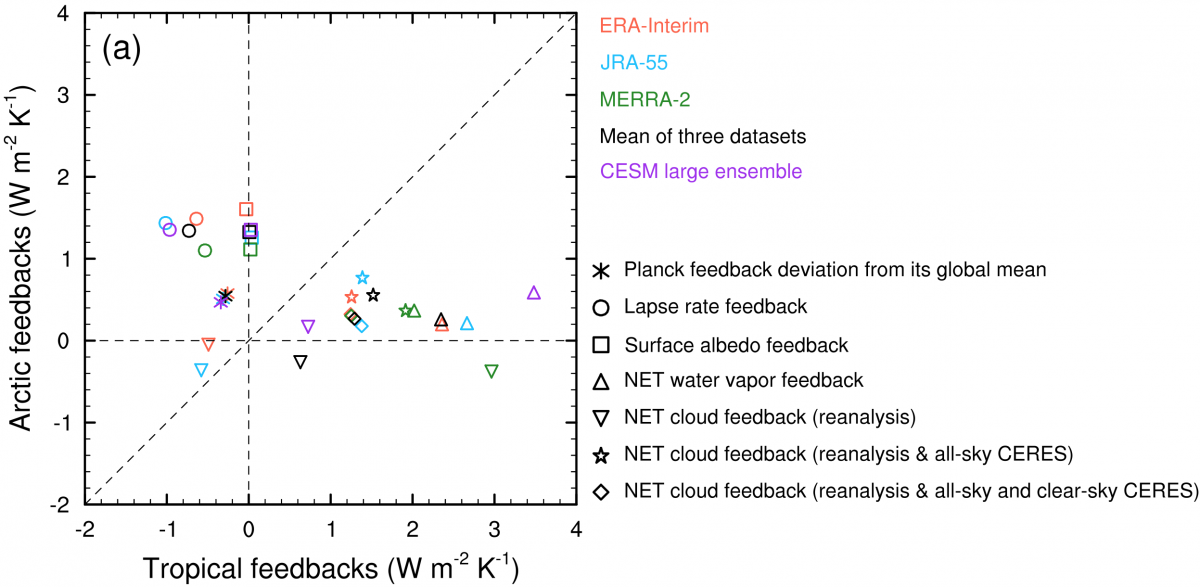Quantifying the Arctic Local Radiative Feedbacks Based on Observed Short-term Climate Variations
The Arctic has warmed dramatically in recent decades, with temperature increasing at a rate of about twice as fast as the global mean value. This phenomenon, commonly known as Arctic amplification (AA), has been found in the observed and modeled climate changes. Several feedback mechanisms were shown to contribute to AA, but their relative importance is still very uncertain. In this study we use a variety of reanalysis and satellite datasets to quantify the Arctic local feedbacks based on short-term climate variations, evaluate the feedbacks simulated in a global climate model, diagnose the impact of dataset choices on the feedback estimates, and identify the sources of main uncertainties. All datasets agree that the lapse rate and surface albedo feedbacks are positive and their magnitudes are comparable. Compared to the tropics, the lapse rate feedback is the largest contributor to AA among all feedbacks, followed by surface albedo feedback and Planck feedback deviation from its global mean. Both shortwave and longwave water vapor feedbacks are positive, leading to a significant positive net water vapor feedback over the Arctic. The net cloud feedback has large uncertainties including its sign, which strongly depends on the data used for all-sky and clear-sky radiative fluxes at the top of the atmosphere, the time periods considered, and the methods used to estimate the cloud feedback. Most of the uncertainty in cloud feedback is from its shortwave component. A better understanding of fine-scale Arctic cloud processes and improvement to their representation in climate models would be required to reduce uncertainties in estimating cloud feedback and its contribution to the Arctic warming.

